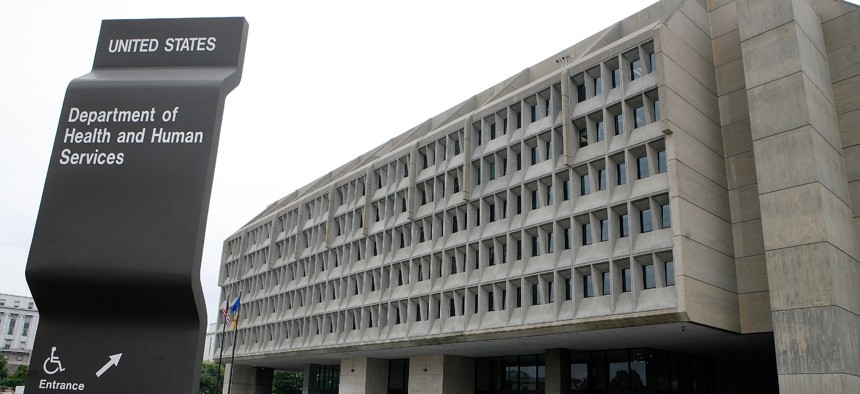New HHS data strategy is coming in 'weeks,' CIO says

Health and Human Services CIO Karl Mathias said Wednesday that the agency will soon be debuting a new strategy to better capitalize on the data it generates. Alex Wong / Getty Images
Data sharing within HHS and beyond the department are still sore spots, but the hope is that a new data strategy could help.
The Department of Health and Human Services is gearing up to release a new data strategy “in the next few weeks,” HHS chief information officer Karl Mathias said Wednesday.
“HHS is a data-generating organization, and it needs to use that data effectively to bring the ability to provide comfort, save lives and enhance the health of Americans,” he said, speaking at an AFCEA Bethesda event Wednesday. “If our data is used properly, it could be an invaluable asset in providing those capabilities. Given that, HHS has embarked on a creation of a data strategy… We have been working on this for a while.”
In terms of what the strategy will cover, Mathias pointed to data sharing, infrastructure and using insights from data for decision-making.
HHS leaders say that culture change is going to be critical to changing how data is perceived and used in the department and public health at large. One sticky spot is data sharing.
“There is, in the government, more risk than reward” to sharing data, said HHS chief data officer Nikolaos Ipiotis during a Tuesday panel. That dynamic is something Ipiotis said that he’s trying to change in HHS by rewarding data sharing efforts when they go well.
“Unfortunately, there is no silver bullet. It’s like all these many small things contribute to the negative culture … where people stay away because they prefer not to do anything than take a risk,” he said.
Still, Mathias also pointed to some successes in using data across the department already.
At the National Institutes of Health, the Science and Technology Research Infrastructure for Discovery, Experimentation and Sustainability, or STRIDES, Initiative, is meant to break down data silos by setting up cost-effective storage agreements with commercial cloud providers that NIH itself and NIH-funded institutions can use. The program supports over 750 research programs across 100 institutions, and is storing over 170 petabytes of information, Matthias said.
Matthias also highlighted HHS efforts to tap into data to make decisions.
The Centers for Medicare and Medicaid Services is piloting a new artificial intelligence system to evaluate Medicare transactions for fraud, for example. It uses tree-based and deep learning approaches, which can quickly adapt to changes in fraud techniques, to comb through administrative claims data, Matthias said.
Still, data leaders from HHS components said Wednesday that more work is needed in the culture around data.
“When the pandemic hit, then we realized how fragmented our systems are” with vaccine data, testing and diagnostics data and other data siloed, said Aloka Chakravarty, the senior statistical advisor and director of data analytics in the Food and Drug Administration’s Office of the Commissioner.
“We are at a transition point where we should look at data as a team sport because you have to have the data scientists, statisticians…. technology and IT [staff] all talking together in common language and common terms so that we can understand each other's needs,” she said.
There have been challenges during the pandemic to “using data to guide decision making in a time of crisis” because of the speed, scale and cross-jurisdictional nature of infectious disease outbreaks.
That “clearly overwhelms the way we organize ourselves in providing healthcare and providing public health, so we need systems that can move at speed and scale as well,” said Dylan George, the director of operations for the new Center for Forecasting and Outbreak Analytics at the Centers for Disease Control and Prevention. “We need to transform how we do this.”
And sharing data internally is only the first step, said Sarah Brenner, the chief medical officer for in-vitro diagnostics and associate director for medical affairs in the FDA’s Center for Devices and Radiological Health.
“Making broad data sets available to the public to look at and to evaluate is critical, because that's how science moves forward,” she said. “Coming up with solutions and coming up with enterprise scale analytics and innovating around the data – that is a whole all hands on deck, all stakeholders sort of need.”
HHS did not respond to request for comment about the forthcoming data strategy.






